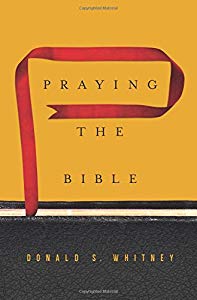Worship
“Let the word of Christ dwell in you richly, teaching and admonishing one another in all wisdom, singing psalms and hymns and spiritual songs, with thankfulness in your hearts to God.” Colossians 3:16
Singing praises to Jesus is a natural result of being born again to new spiritual life. When we learn the good news of who Jesus is and what He has done upon the cross that our sins might be forgiven, the word of Christ begins to dwell within us. You have to make decisions about what you believe about these things. Do you believe that Jesus really rose from the dead? When you believe what you have learned, knowledge becomes faith. What was once a curiosity becomes a passion. Jesus, who was once far off, becomes more precious to you than anyone. Where you once knew so little about Him, you now seek every day to know Him more through studying the Bible. You want more and more of His words filling your thoughts and shaping your life. This is the point where you begin to understand what Paul wrote about the word of Christ dwelling richly in you! You want to memorize the words of Jesus, write them where you can be reminded of them, and tell them to your friends and children in times of trouble.
We then enter into the community of the church and, in love, begin to “teach and admonish” each other wisely with the words of the Bible. All this culminates in the congregation being filled by the Holy Spirit to sing praises together – psalms, hymns, and spiritual songs – expressing truth in song. Christian congregational singing is a special activity where people joyfully and together turn truth into song and add even more beauty to already beautiful truths. God would have us sing to Him. He has given us this ability and would have us use it, above all, to bring glory to His name. The risen King Jesus is worthy of our praise!
Part of what motivates us is thankfulness from the heart: an overflowing thankfulness for forgiveness of sin, the removal of the guilt of sin, the unspeakable joy of free grace through Jesus, eternal life, a new identity in Jesus, and peace that passes understanding. This deep thankfulness is not fake, it’s deeply seated in the heart. It makes you want to sing – loudly and joyfully.
I’m thankful for the gospel-teaching churches I was raised in, but one of their significant weaknesses was worship. One of the first times I remember as a teen being moved by musical worship was at a Promise Keepers rally. These were large events that revolved around calling men to deeper devotion to Christ. Much emphasis was put on men truly singing biblical truth with a full and thankful heart. It was powerful, authentic worship, and I know Jesus was pleased to hear thousands of men sing that were thankful to God for His grace.
But during all that time, I never heard a sermon like Bob preached last week. No one explained to me, from the Bible, how worshipping God can and should involve even more than our voices. We should prepare our hearts for congregational worship through confession, prayer, and time in Scripture. We should seek the presence and filling of the Holy Spirit, and we should engage in worship with our voices and the posture of our body. Our worship should involve our entire person.
I distinctly remember the first time I felt deeply moved to raise my hands to honor the Lord as I sang in church. No one else had their hands raised, and it was going to be weird to have my hand raised when no one else did. But I had reached a point in my Christian life where I was determined to obey the leadings of the Holy Spirit. I raised my hand and sang with a full heart of thankfulness to Jesus. It was like I had been freed from something. I have never felt inhibited again in raising my hands to God as I sing.
There is no specific way that we are commanded to sing, or certain set of things we are to do as we sing, but there are important principles we must not ignore. First, the Lord God is worthy of worship – and He will be worshipped (Psalm 113:2-3, Malachi 1:11). The name of Jesus will be worshipped among the nations. He is God, and He is the Savior. He is worthy to be praised.
Second, singing together at church is about God being worshipped by you being involved in congregational praise. Musical worship on Sunday morning is not about people performing something for you to listen to and experience. They are playing music to lead us all in praising Jesus together. I’m always grieved when my heart is overflowing with joy to Jesus, and I look over the congregation and see people standing stone still, not singing a word. They stand in the midst of worshippers, not worshipping. It’s always shocking to me and turns my joy to sadness. It causes me to pray for these people, that they may come to understand the fullness and glory of who Jesus is.
If you are one of those people that does not sing, I urge you to spend more time prayerfully reading the Bible this week. Fill your heart with more of the words of Christ. Draw near to Jesus in personal relationship. Confess your sins. Pray to Jesus about the things that trouble you. Live out your Christian faith in sacrificial obedience and love. You will find that you have plenty to sing about on Sunday. And it doesn’t matter if you can’t sing well. This is part of God’s plan in singing together as the church. Your voice will blend with others, and the result is always beautiful when the song is from a thankful heart.
Whoever you are, if you think singing is embarrassing and not for you – you’re wrong. When you feel the tug of the Holy Spirit on your heart, obey and sing. You may start timidly, but press to honor God with a full heart. Follow the leading of the Holy Spirit concerning the posture of your body, whatever is appropriate for the work the Holy Spirit is doing in your heart at the moment (joy, thankfulness, confession of sin, praying for those in need, etc…).
Lastly, we are admonished in the Bible to be “doers” of the Word and not merely hearers (James 1:19-27). Singing with a full and thankful heart is an important part of “doing” obedience. Intentionally not singing when you know you should withholds honor from the Lord and is sinful. Be a part of the worshipping congregation of the church. Sing! Obey the leading of the Holy Spirit and may God the Father look down upon us in the field and be pleased by what He hears!
May our voices reach the heavens,
Pastor Vic









